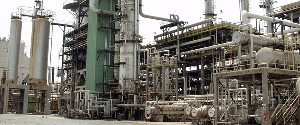The petroleum sector in Africa is experiencing significant growth, driven by various factors such as demographic shifts, infrastructural development, regulatory reforms, and technological advancements.
This growth is particularly evident in the context of rapid population growth, urbanization, and economic expansion across the continent, which are driving up the demand for petroleum products. While this trend presents both opportunities and challenges for stakeholders in the industry, it is especially pronounced in countries like Nigeria, Kenya, and Ethiopia, where governments are investing in
infrastructure to meet the rising demand.
To address the challenges and capitalize on the opportunities in the petroleum downstream sector, governments, industry stakeholders, and global partners need to collaborate and innovate. There is a growing need for platforms that facilitate dialogue and provide solutions to position Africa as a global
leader in the industry while advancing broader economic and social objectives.
In Ghana, the National Petroleum Authority (NPA) organizes the Ghana International Petroleum Conference (GHIPCON) as a platform for stakeholders to engage, innovate, and collaborate. This conference brings together industry leaders, policymakers, and stakeholders from across Africa to discuss key issues, showcase cutting-edge technologies, and explore investment opportunities that drive sectoral growth.
GHIPCON serves as a catalyst for promoting Africa as an attractive destination for petroleum investment by showcasing investment opportunities, fostering collaboration, and facilitating skills development within the downstream sector. Through various sessions, exhibitions, and workshops, the conference enhances the capabilities of professionals and encourages networking and collaboration among industry players.
In addition, GHIPCON sparks innovation and thought leadership by providing a forum to discuss emerging trends, technological advancements, and regulatory developments in the petroleum downstream sector. By fostering dialogue and collaboration, the conference plays a crucial role in enhancing the sector's competitiveness, attracting investment, and ensuring sustainable practices.
Moreover, GHIPCON offers numerous advantages for participants, including access to expert insights, technical knowledge, and industry best practices through keynote speeches, panel discussions, and technical sessions. It also provides a platform for showcasing success stories, projects, and innovations, fostering inspiration and learning among attendees. The conference also facilitates business opportunities through networking events, enabling participants to forge strategic partnerships, explore new markets, and secure investment deals.
As Africa continues its journey toward energy security and economic growth, GHIPCON remains an essential platform for shaping the future of the continent's energy landscape through dialogue, innovation, and collaboration among stakeholders.
Business News of Monday, 11 March 2024
Source: Kwabena Appiah, Contributor

















